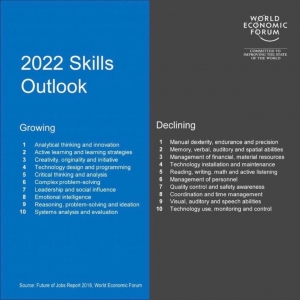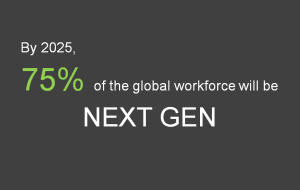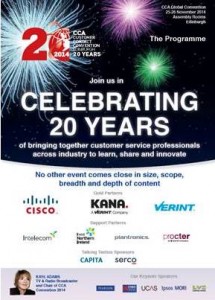Somebody prompted me to write this, by asking earlier this week, “Are things really changing?” I think they wanted me to say “well, not really” so they could go back to doing the same thing in the same old way, probably because it would be easier to do so.
We don’t have the space here to quote all the areas of change, but one of the most impactful will be the demographic shift. Populations in the US and UK especially are aging: in the US 10,000 people turn 65 every day.
By 2035, the number of Americans that will be of retirement age will be larger than the number of people under 18 for the first time in US history. It is a setup that has never been experienced before, plus it will be interesting to watch 5 different generations all interacting in the workplace with their varying characteristics and demands.
Sprinkle over the top some of the unchartered trends and behaviours and we have a melting pot of transformation; an experienced 55-year old protects their information and doesn’t share too much, whereas an 18-year old is upset if the public doesn’t read and respond to their weekend exploits. This change in living very public lives will be an area of contention and yet this is just one behaviour that is cascading down to organisations and forcing them to rethink.
No one quite understands millennials but they are hugely important to the future – they will have different views, ideas and work styles for sure, but more importantly they will make up 75% of the workforce by 2025. There will simply be so many of them and they are going to be the largest generation ever to enter the workforce. We need to attract them on their terms, or they will choose not to work for us.
Remember the (recruitment) ‘milk round?’ Back in the ‘80s we used to attend job fairs wearing horrid ties pleading for companies to give us a chance. Today, organisations must shift from creating an environment where they assume that people need to work there to one where people want to spend their time.
We are mobile, geographic boundaries do not exist, attitudes are disruptive and the work day is being redefined. I feel sorry for companies that refuse to change. I feel more sorry for manufacturers of mens ties!








